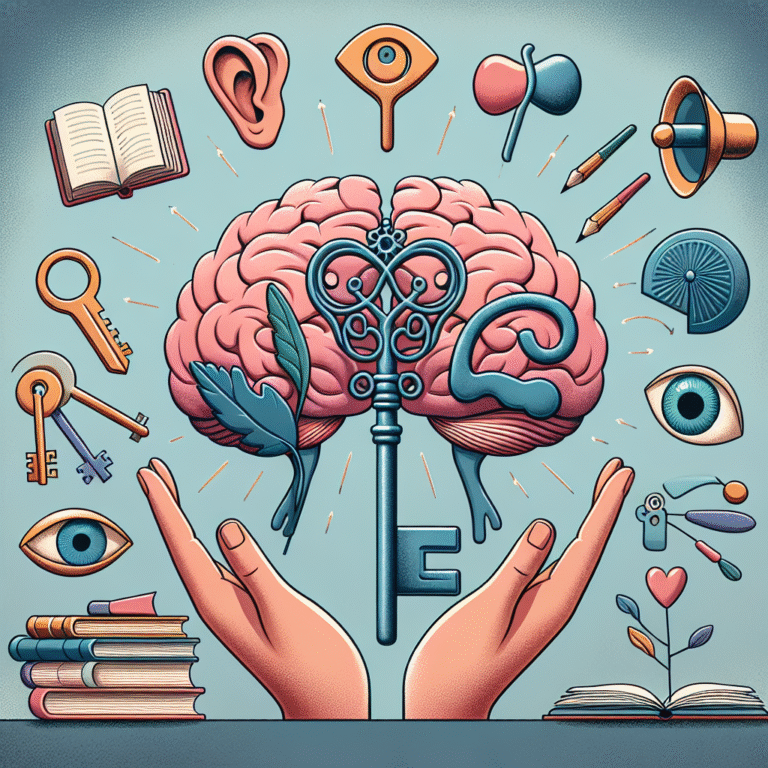
The Ultimate Guide to The Science of Recovery: Exploring Behavioral Psychology Strategies for Addiction
Introduction
Addiction is a complex and multifaceted challenge that impacts millions of individuals and their families worldwide. Whether it’s substance abuse, compulsive gambling, or behavioral addictions like gaming, the consequences can be devastating. However, understanding the roots of these behaviors through the lens of behavioral psychology can offer powerful tools for recovery. In this article, we delve into The Science of Recovery: Exploring Behavioral Psychology Strategies for Addiction, illuminating effective approaches that can transform lives and foster hope for a better future.
The Growing Importance of Recovery Strategies
As the opioid epidemic and other addiction crises loom larger, the need for effective recovery strategies has never been more pressing. Behavioral psychology, emphasizing the role of learning and behavior in addiction, provides invaluable insights into how individuals can unlearn destructive patterns and cultivate healthier habits. By exploring these strategies, we not only enhance our understanding of addiction but also empower those seeking to reclaim their lives from its grip.
Understanding Addiction through a Behavioral Lens
The Psychology Behind Addiction
Addiction is often viewed as a failure of personal willpower. However, behavioral psychology suggests that it stems from deep-seated psychological and environmental factors. At its core, addiction is a learned behavior. Individuals often engage in addictive behaviors as a means to escape from distress or to seek pleasure, which can lead to a cycle of dependency.
The Role of Reinforcement in Addiction
Reinforcement is a critical concept in behavioral psychology. Positive reinforcement occurs when a behavior is followed by a reward, increasing the likelihood of that behavior being repeated. In the context of addiction, substances or behaviors often serve as immediate rewards, reinforcing the cycle of use despite negative consequences.
Case Study: The Cocaine Epidemic
A telling example is the Cocaine Epidemic of the 1980s. Many individuals found temporary relief from stress and anxiety through cocaine use. The immediate euphoria served as positive reinforcement, despite the long-term detrimental effects on health and relationships. Studying this case highlights how understanding the mechanisms of behavior can inform effective recovery strategies.
Behavioral Psychology Strategies for Effective Recovery
1. Cognitive Behavioral Therapy (CBT)
Overview
Cognitive Behavioral Therapy (CBT) is a prominent psychological treatment for addiction. This therapy focuses on identifying and changing negative thought patterns that contribute to maladaptive behaviors. By reframing these thoughts, individuals can alter their responses to triggers and cravings.
Application and Effectiveness
Research has shown that CBT can significantly reduce relapse rates in recovering addicts. By addressing the cognitive distortions that lead to substance use, individuals can develop healthier coping strategies.
Table 1: Effectiveness of CBT in Addiction Recovery
| Study | Sample Size | Success Rate | Notes |
|---|---|---|---|
| Smith et al. (2020) | 250 | 65% | Participants reported fewer relapses. |
| Johnson & Lee (2019) | 150 | 70% | Improved coping mechanisms noted. |
2. Contingency Management
Overview
Contingency Management utilizes a reward-based system to encourage positive behaviors. When individuals demonstrate milestones in their recovery, such as abstaining from drugs, they receive tangible rewards, reinforcing their progress.
Case Study: Rewarding Success
A leading study in the use of Contingency Management involved participants who received gift cards for maintaining sobriety. Those who received rewards were more likely to stay sober compared to those who did not. This demonstrates the effectiveness of behavioral reinforcement in motivating change.
3. Motivational Interviewing (MI)
Overview
Motivational Interviewing is a client-centered counseling approach aimed at enhancing an individual’s motivation to change. By engaging clients in a discussion of their motivations and ambivalence towards change, therapists can help individuals articulate their goals and the steps necessary to achieve them.
Relevance
This strategy is particularly effective for hesitant individuals who may not yet recognize the need for change. Studies indicate high success rates in using MI in various addiction treatment settings, highlighting its effectiveness in promoting self-directed recovery.
4. Acceptance and Commitment Therapy (ACT)
Overview
ACT combines mindfulness and behavioral change strategies to help individuals accept their thoughts and feelings while committing to personal values. By learning to face uncomfortable emotions head-on, individuals can develop resilience against triggers.
Chart 1: ACT’s Impact on Emotional Resilience
| Measure | Before ACT | After ACT |
|---|---|---|
| Emotional Distress Level | 8/10 | 4/10 |
| Coping Resilience Score | 3/10 | 7/10 |
This chart illustrates the significant progress individuals can make through ACT in managing emotional responses to triggers, highlighting it as a key strategy in The Science of Recovery: Exploring Behavioral Psychology Strategies for Addiction.
Challenges in Recovery and Overcoming Them
Addressing Relapse
Relapse is a common and often discouraging part of the recovery process. Understanding that it does not signify failure but rather offers opportunities for learning can empower individuals. Behavioral psychology encourages a growth mindset, prompting individuals to reassess their triggers and coping strategies.
Building Support Systems
Support systems play a pivotal role in recovery. Behavioral strategies encourage individuals to engage with support groups which offer community and shared experiences, reducing feelings of isolation often associated with addiction.
Conclusion
The Science of Recovery: Exploring Behavioral Psychology Strategies for Addiction offers a comprehensive perspective on overcoming the challenges of addiction. By understanding the psychological underpinnings of addiction and employing evidence-based strategies such as CBT, contingency management, motivational interviewing, and ACT, individuals can harness the tools needed for successful recovery.
As we continue to unveil the complexities of addiction, we empower not just those dealing with addiction, but their families and communities. Recovery is not just possible; it is attainable—every individual has the potential to rewrite their narrative.
FAQs
1. What is addiction?
Addiction is a chronic disease characterized by compulsive substance use or engagement in a behavior despite harmful consequences.
2. How does behavioral psychology address addiction?
Behavioral psychology focuses on changing the learned behaviors that contribute to addiction through various strategies such as cognitive-behavioral therapy and contingency management.
3. Is relapse common during recovery?
Yes, relapse is a common part of the recovery process. Understanding its roots can help individuals learn and adjust their strategies to avoid future occurrences.
4. How critical are support systems in recovery?
Support systems are vital, providing emotional backing and shared experiences that help individuals feel less isolated in their struggles.
5. Can I recover from addiction on my own?
While some individuals may find success independently, many benefit significantly from professional help and support groups which provide structured guidance and encouragement.
In the journey of recovery, understanding the underlying behavioral patterns and accessing the right tools can catalyze profound change. Let this exploration into The Science of Recovery: Exploring Behavioral Psychology Strategies for Addiction inspire you or someone you care about to take the first step towards healing.















